Many of the Chamber’s office bearers are also NPC deputies or CPPCC National Committee members. Earlier, they attended the annual plenary sessions of the NPC and the CPPCC National Committee (“Two Sessions”) to express their views on issues such as the economic development and social livelihoods of the country and Hong Kong as well as the response in the post-pandemic era, actively involving themselves in government and political affairs.

Ian Fok: Optimizing education with Greater Bay Area research deliverables
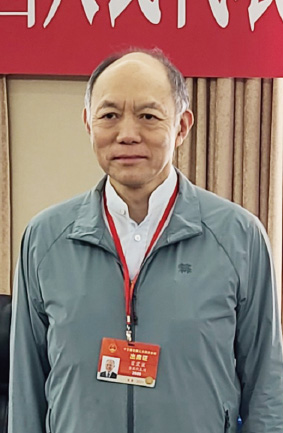
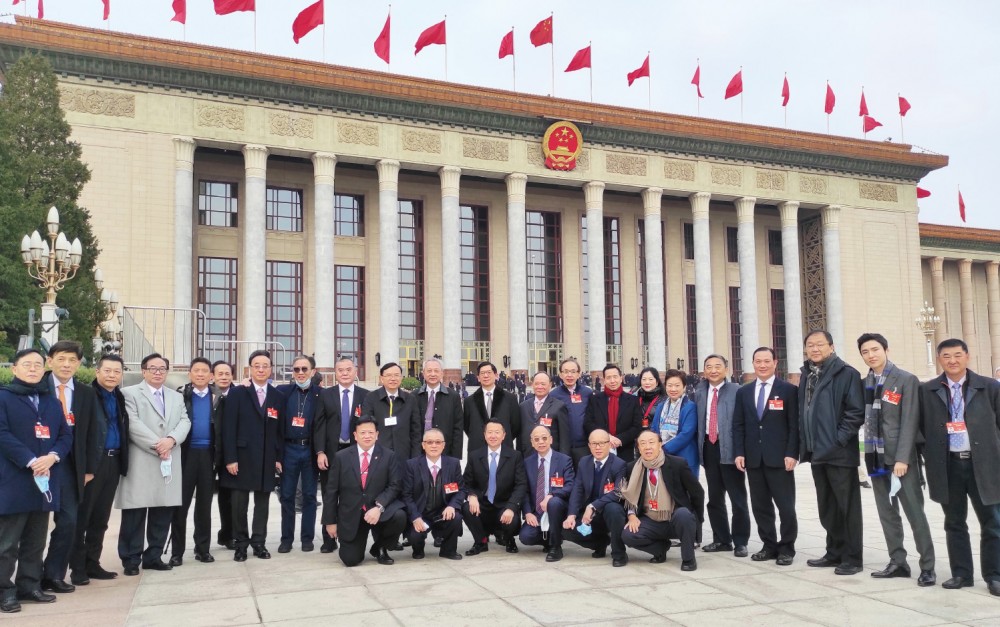 Marching boldly towards the goal of becoming a world-class international bay area, the Guangdong-Hong Kong-Macao Greater Bay Area (Greater Bay Area) has been a hot topic at the Two Sessions in recent years. At this year’s sessions, Ian Fok, the Chamber’s Life Honorary Chairman (Deputy to the NPC), submitted a proposal closely connected to the development of the Greater Bay Area.
Marching boldly towards the goal of becoming a world-class international bay area, the Guangdong-Hong Kong-Macao Greater Bay Area (Greater Bay Area) has been a hot topic at the Two Sessions in recent years. At this year’s sessions, Ian Fok, the Chamber’s Life Honorary Chairman (Deputy to the NPC), submitted a proposal closely connected to the development of the Greater Bay Area.
Firstly, on the front of technology development, Fok says while the Greater Bay Area boasts dynamic and essential innovation resources, there is scope for improvement in the transfer rate of innovation results, technology innovation policy provision, collaboration between the industrial, academic and research sectors, as well as professional team building. He therefore suggests linking up Hong Kong and Macao’s innovation resources with the Greater Bay Area while strengthening policy provision and accelerating the consolidation of innovation fundamentals to drive technology and innovation development in the Greater Bay Area.
On the education front, Fok notes that national studies have been actively promoted over the years to help Hong Kong compatriots understand the latest national developments, strengthen their national identity and develop popular willingness to accept Hong Kong’s reunification with China. Nevertheless, such education may not timely reflect the latest changes in the national situation, and national education initiatives have met resistance over the years. Addressing this issue, Fok suggests to expand program contents and present them in different forms. Educational contents should be enhanced to align with social, livelihood and youth vocational development needs. Macro measures should include introducing varied forms of publicity and education, strengthening professionalized management, and setting up normalized exchange mechanisms. Examples include building a Greater Bay Area National Studies Exchange Platform, establishing formal and non-formal normalized exchange mechanisms, and launching exchange activities in an orderly manner.
As always, as President of the Hong Kong Wushu Union, Fok closely follows the development of martial arts. He notices a lack of martial arts exchange between the nine Pearl River Delta cities and Hong Kong and Macao. Local martial arts associations are only interested in their own wushu development and there is no vision or structure to promote the Lingnan martial arts heritage in the Greater Bay Area and the rest of the world. Youth martial arts development in Hong Kong and Macao is also lagging. Fok proposes to set up a traditional martial arts exchange and cooperation demonstration zone, step up marital arts education in schools and increase martial arts exchange with Belt and Road countries to encourage succession and development of tradition martial arts.
Jonathan Choi: Two Sessions not hindered by pandemic, boosting economy internally and externally
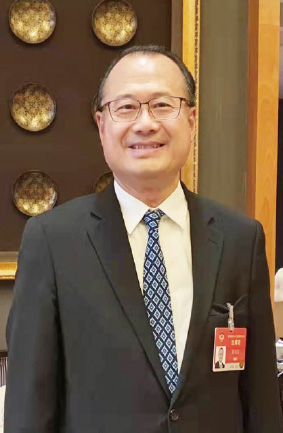
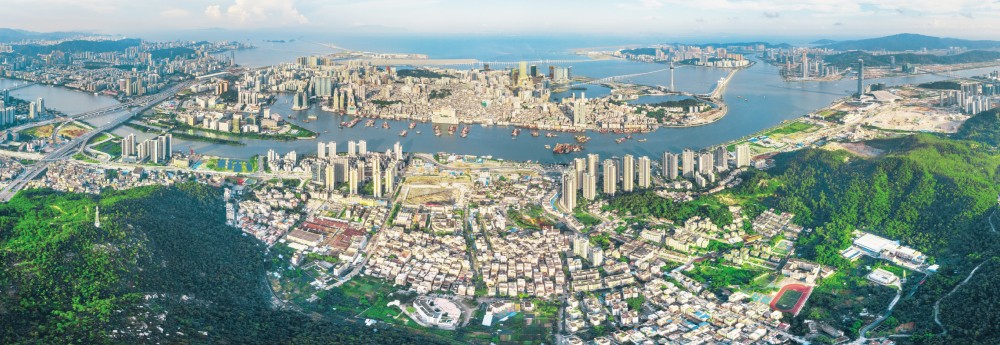 The dual-circulation economic development strategy is one of the focal points in the 14th Five-Year Plan. Jonathan Choi, the Chamber’s Permanent Honorary President (CPPCC National Standing Committee Member), presented several proposals at this year’s Two Sessions, mainly focusing on China’s economy and promoting regional cooperation.
The dual-circulation economic development strategy is one of the focal points in the 14th Five-Year Plan. Jonathan Choi, the Chamber’s Permanent Honorary President (CPPCC National Standing Committee Member), presented several proposals at this year’s Two Sessions, mainly focusing on China’s economy and promoting regional cooperation.
Regarding China’s economy, Choi, who is also the Chairman of the Guangdong-Hong Kong-Macao Bay Area Entrepreneurs Union, believes that the construction of the Greater Bay Area should use the European Union (EU) as a benchmark, comprehensively promoting the alignment of rules and mechanisms for economic operation. He noted that after more than half a century of efforts, the nearly 30 EU countries have realized the free movement of goods, services, people, and capital among different sovereign states, reaching the highest level of integrated regional development in the world. In contrast, in the Greater Bay Area, which is under one country, the convenience of factor movements and people-to-people exchanges among the 11 Chinese cities is far inferior to the EU. Such a gap precisely presents a huge potential for improvement.
He suggested that Qianhai could serve as a testbed for financial institutions in the region to review and approve cross-border financial services in accordance with common standards. For Hong Kong and Qianhai, with the approval of the central government, they can establish a coordination mechanism between the two places in the financial sector to allow two-way circulation of funds on a larger scale, while supporting the free movement of financial talents and information. At the same time, he proposed a series of measures to facilitate interconnection between the two places, such as mutual recognition of professional qualifications, relaxation of personal taxation and establishment of green channels for medical care.
Choi also suggested setting up a think tank and an alliance of entrepreneurs in the Bohai Bay Economic Rim to facilitate the early formation of a strategic layout covering the north and south bay areas and the Yangtze River Delta Economic Belt. He also suggested establishing a pioneer zone for ecological protection and high-quality development of the Yellow River Basin in Ningxia to safeguard ecological security in the northwest and the whole country.
Given that China and Vietnam are the only two countries in the world that have effectively contained the pandemic and achieved positive economic growth in 2020, Choi suggested setting up a special regulatory zone that is “within the national territory but outside the customs territory” in the Honghe area of the Yunnan Pilot Free Trade Zone to set up a processing and manufacturing base for ASEAN, a business logistics center and a demonstration area for innovation and cooperation in the China-Vietnam Economic Corridor. In addition, Choi noted that coding education amid the development of AI is a new direction in global education. Therefore, in his proposal, he suggested supporting outstanding coding companies from the Mainland to come to Hong Kong to set up a coding research center for the Belt and Road, which would enhance the leading position of Hong Kong and the Mainland in coding and improve China’s ability to serve the Belt and Road countries in the field of coding through Hong Kong.
He also noted that this year’s Two Sessions is a sign that China has taken the lead in recovering from the severe global pandemic. The compact agenda, combined with video and online methods, made the six-and-a-half-day sessions extremely effective.
Ricky Tsang: Setting up new-type think tanks with Greater Bay Area characteristics
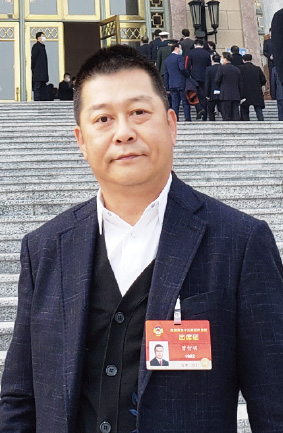
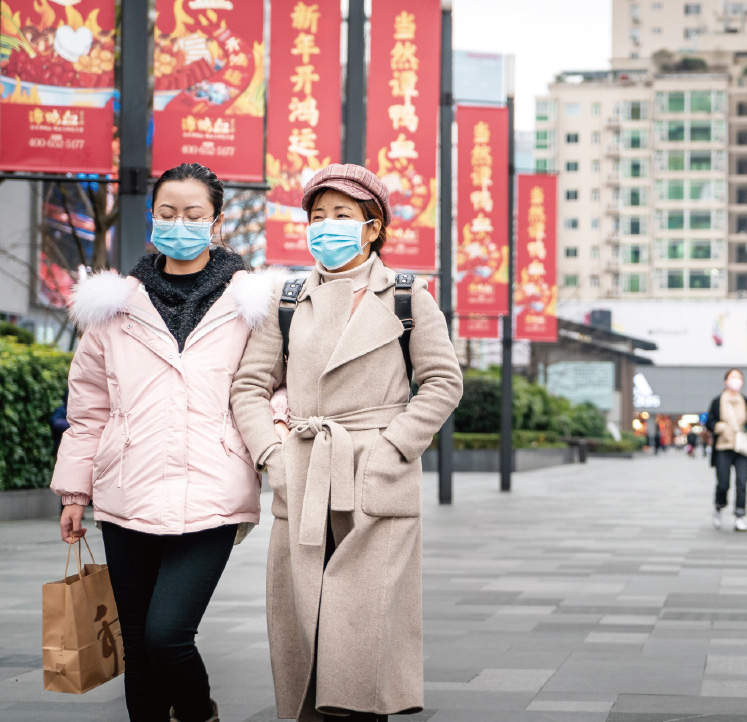 As it is built in a special environment featuring “One Country, Two Systems, three currencies, three different jurisdictions and three separate customs zones”, the Greater Bay Area faces numerous and complex issues, including the development of think tanks. Ricky Tsang, the Chamber’s Vice-chairman (CPPCC National Committee Member), believes that although there are many think tanks in the Greater Bay Area, they have their own problems due to different systems and other reasons. He suggested that the governments of Hong Kong, China and Macao should fully harness the strengths of local think tanks, setting up a new type of think tanks in the Greater Bay Area to strengthen their voice and strive to help the country improve its soft power.
As it is built in a special environment featuring “One Country, Two Systems, three currencies, three different jurisdictions and three separate customs zones”, the Greater Bay Area faces numerous and complex issues, including the development of think tanks. Ricky Tsang, the Chamber’s Vice-chairman (CPPCC National Committee Member), believes that although there are many think tanks in the Greater Bay Area, they have their own problems due to different systems and other reasons. He suggested that the governments of Hong Kong, China and Macao should fully harness the strengths of local think tanks, setting up a new type of think tanks in the Greater Bay Area to strengthen their voice and strive to help the country improve its soft power.
He added that the Think Tank Alliance Framework Agreement that over 30 think tanks in the Greater Bay Area signed in 2019 had set the goal of strengthening cooperation and co-development. However, cross-border research exchanges are at a standstill due to the unprecedented violent confrontations in Hong Kong in recent years and the raging COVID-19 pandemic. In addition, major issues such as how to leverage the respective strengths of the local think tanks in the three places to jointly carry out research on the construction of the Greater Bay Area are also stuck at the planning stage. At the same time, some research restrictions on the Mainland should be relaxed according to specific needs.
“As for Hong Kong, it has over 40 think tanks with research areas covering politics, economy, people’s livelihood, international affairs, etc. Through Hong Kong’s strengths such as its extensive international contacts, these think tanks generate a certain degree of international influence and show a variety of development trends. However, as the development of think tanks in Hong Kong is still in its infancy, they are generally small in scale, with the exception of a few supported by large consortia or well-resourced individuals. In addition, there are many policy obstacles for Hong Kong’s think tanks to carry out cooperative research with those on the Mainland, which in the long run will affect the think tanks in the three places in conducting joint research on the construction of the Greater Bay Area as well as the development of new-type think tanks.”
He suggested improving the Greater Bay Area’s think-tank alliance system as soon as possible, adopting special policies to support the development of small and medium-sized think tanks in Hong Kong and Macao to fully harness the strength of synergy. In addition, relevant authorities of the country should focus on supporting the Greater Bay Area’s think tank alliance, entrusting some national-level basic research projects to the alliance to produce more intellectual research results so that the construction of the Greater Bay Area will progress more smoothly. In the long run, decision-making norms should be formulated at the national level, requiring the governments in the Greater Bay Area to include think tank consultation in the decision-making process in order to give full play to the role of think tanks to raise their level and influence.
Connie Wong: Integrate into the country’s development landscape for full economic development under pandemic
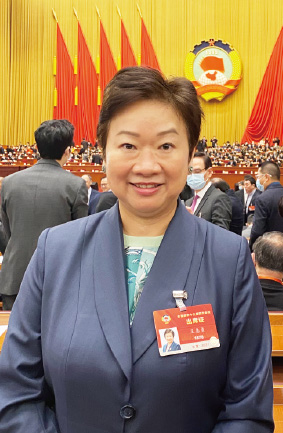
 Hong Kong’s economy and people’s livelihood have suffered a heavy blow due to the anti-amendment protests the year before and then the COVID-19 pandemic. Connie Wong, the Chamber’s Vice-chairman (Deputy Director of the Committee for Handling Proposals of the CPPCC and CPPCC National Committee Member), believes that Hong Kong can focus on four areas to get out of the COVID-19 pandemic and integrate into the country’s development landscape to fully revitalize its economy as soon as possible. First, Hong Kong can establish itself as an international certification center. She noted that the Hong Kong-Shenzhen Innovation and Technology Park will commence the first phase of infrastructure construction this year, but currently, many industry approval criteria are not consistent between Hong Kong and the Mainland. She suggested to set up an industry certification center in the Park and strive for all products certified by the center to be recognized by relevant Mainland institutions, and then to be recognized by countries along the Belt and Road. She is convinced that this will further attract domestic and foreign high-tech enterprises to set up in Hong Kong, while exemplifying Hong Kong’s strengths under “One Country, Two Systems”.
Hong Kong’s economy and people’s livelihood have suffered a heavy blow due to the anti-amendment protests the year before and then the COVID-19 pandemic. Connie Wong, the Chamber’s Vice-chairman (Deputy Director of the Committee for Handling Proposals of the CPPCC and CPPCC National Committee Member), believes that Hong Kong can focus on four areas to get out of the COVID-19 pandemic and integrate into the country’s development landscape to fully revitalize its economy as soon as possible. First, Hong Kong can establish itself as an international certification center. She noted that the Hong Kong-Shenzhen Innovation and Technology Park will commence the first phase of infrastructure construction this year, but currently, many industry approval criteria are not consistent between Hong Kong and the Mainland. She suggested to set up an industry certification center in the Park and strive for all products certified by the center to be recognized by relevant Mainland institutions, and then to be recognized by countries along the Belt and Road. She is convinced that this will further attract domestic and foreign high-tech enterprises to set up in Hong Kong, while exemplifying Hong Kong’s strengths under “One Country, Two Systems”.
Second, she suggested Chinese companies to develop high-tech industries in Hong Kong. At present, Hong Kong-listed Chinese companies account for over 60% of the overall Hong Kong trading market share and have a significant impact on the Hong Kong financial market, but their employees in Hong Kong account for less than 10% of the overall job market. Wong suggested that Chinese companies can use the Lok Ma Chau Loop to develop high-tech industries, expand local employment and attract global talents.
Third, harness Hong Kong’s role as an international financial center to help technology innovation companies raise funds. Wong noted that in the past, technology innovation companies mostly got listed in the US for financing. However, due to US sanctions, she expected that many companies would switch to get listed in Hong Kong. For this purpose, the Hong Kong Stock Exchange can set up a listing board specifically for technology innovation companies. Chinese financial companies in Hong Kong can also leverage their strengths to vigorously develop foreign-currency PE funds and VC funds, and in conjunction with the listing platform of the Hong Kong Stock Exchange, build an ecosystem that provides financing services for technology innovation companies.
Fourth, Wong suggested to explore new ways of living and working under the new normal amid the COVID-19 pandemic in order to quickly activate the command center to minimize the impact should there be another outbreak. While various countries have begun COVID-19 vaccinations, Hong Kong still needs strict prevention and control. Even after Hong Kong achieves “zero infection”, as long as the international community has not yet effectively contained the pandemic, it still needs to practice strict control of foreigners entering its territory to avoid a resurgence of the pandemic.
Tommy Li: Revive the Chinese medicine industry and drive development of the movie and television industry in the Greater Bay Area
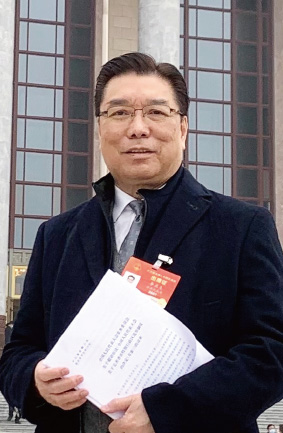
 As a member of the trade, Tommy Li, the Chamber’s Vice-chairman (Deputy to the NPC), closely follows the development of the Chinese herbs and medicine industry. During this year’s Two Sessions, he submitted a proposal on this issue.
As a member of the trade, Tommy Li, the Chamber’s Vice-chairman (Deputy to the NPC), closely follows the development of the Chinese herbs and medicine industry. During this year’s Two Sessions, he submitted a proposal on this issue.
Li reveals that he proposed a simplified registration program two years ago for Chinese patent medicine produced in Hong Kong to be marketed in the Greater Bay Area on a trial basis. Given the urgency to restart the economy when the pandemic ends, he stresses the need to implement the Guangdong-Hong Kong-Macao Greater Bay Area Chinese Medicine Highlands Construction Plan at the earliest possible date. Such a move can also support the development of China’s dual-circular economy. He suggests to plan a Greater Bay Area Chinese Medicine City, promptly put in place a preferential policy for Hong Kong and Macao companies, relax regulation of Hong Kong and Macao companies operating in the Greater Bay Area, and push forward policies for building a Chinese medicine highland to revive Hong Kong’s Chinese medicine industry. He also notes that visitors have trouble bringing bird’s nest products purchased from Hong Kong into the Mainland, which indicates that administrative measures require review and amendment. As it will be a priority in the post-pandemic period to revive the economy of both Hong Kong and the Mainland, any business and social benefiting policies should be executed as quickly as possible.
Regarding the creative industries, Li points out that the Outline Development Plan for the Guangdong-Hong Kong-Macao Greater Bay Area contains several recommendations, including forging cooperation between the movie and television industries of Guangdong, Hong Kong and Macao; strengthening movie investment, collaboration and talent exchange; and supporting Hong Kong’s role as a hub of movie and television fairs. As such, he thinks the Central and HKSAR Governments should provide greater policy, resources and manpower support, such as relaxing restrictions on Hong Kong movie companies participating in the mainland movie industry, establishing a Greater Bay Area movie censorship authority and a movie and television industry alliance, launching training programs and rolling out a subsidy scheme for movie and television productions. There are also opportunities to promote tourism. He says Hong Kong as a core engine of the Greater Bay Area is a bridge in its movie and television hub. He believes Hong Kong can inject new momentum to invigorate the mainland movie and television culture. By complementing each other’s advantages, we can make China’s movie and television culture more competitive and influential in the international arena.
Herman Hu: Develop biotechnology and uphold national security
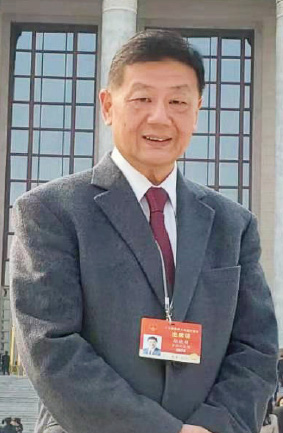
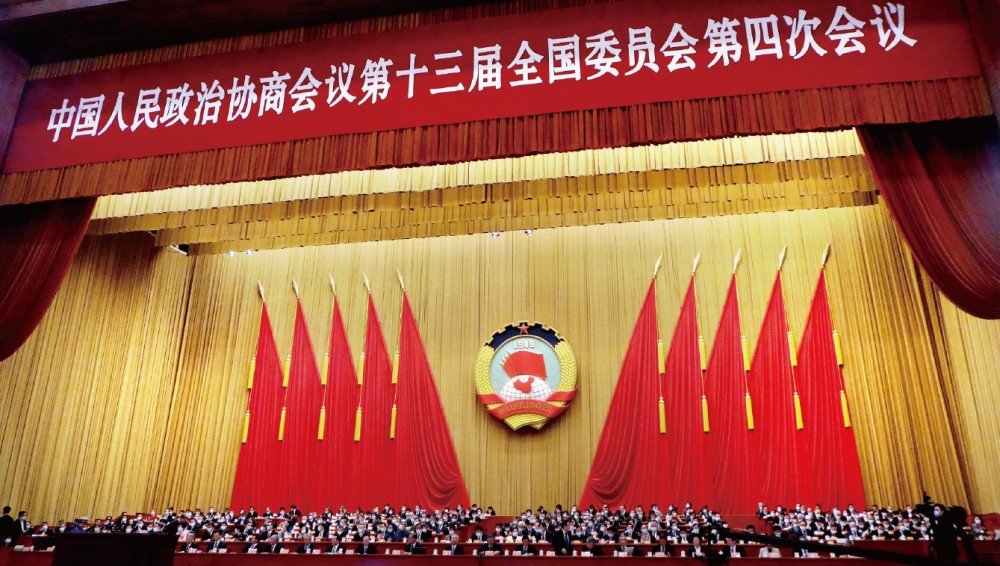 The country has delivered on its promise to lift itself out of poverty and to create over 10 million new jobs. Herman Hu, the Chamber’s Vice-chairman (Deputy to the NPC), believes that the achievements are encouraging, and he has full confidence in the country’s future. In this context, he submitted several proposals in the areas of biotechnology industry, national security, and safety of children’s products.
The country has delivered on its promise to lift itself out of poverty and to create over 10 million new jobs. Herman Hu, the Chamber’s Vice-chairman (Deputy to the NPC), believes that the achievements are encouraging, and he has full confidence in the country’s future. In this context, he submitted several proposals in the areas of biotechnology industry, national security, and safety of children’s products.
Hu noted that the country’s biopharmaceutical industry has gradually caught up with the progress of large European and US companies. Nevertheless, faced with the intense technological competition from various countries, he suggested the country use Hong Kong’s international network and reputation to help the Mainland biotechnology industry raise funds and gain international recognition to overcome its shortcomings in the field of biotechnology at a faster pace. He also noted that the COVID-19 pandemic has made people pay more attention to the development of biotechnology, and he suggested the country give strong policy support to Hong Kong to build an international biotechnology transformation center and attract international investors to invest in Chinese biotechnology companies, enabling the wider application of China’s scientific research results in the international market to both safeguard national security and generate profits, thus creating a win-win situation.
As for national security, Hu believes that although Hong Kong has shifted from chaos to governance, efforts to safeguard national sovereignty must not be slackened. Therefore, he suggested that the country allow Hong Kong and Macao citizens to volunteer for military service to perform the important task of defending the country. He believes that this approach will help establish the concept of nation state among Hong Kong’s young people and facilitate the application of the Hong Kong National Security Law. Furthermore, if young people volunteer for military service, the country can pay for their university education with a view to attracting a new generation of patriots. He also suggested that the country guide Hong Kong to build a national security education base, provide training and assessment, and offer advisory guidance and assistance to Hong Kong schools to make up for the current deficiencies in Hong Kong’s national security education.
Hu also noticed that children’s products still pose safety risks, which endanger the health and personal safety of children and seriously affect the image of Made in China. Therefore, he suggested that children’s products must be better regulated and subject to strict law enforcement, communication and cooperation with industry players must be strengthened, and laws, regulations and safety standards must be continuously improved to provide our next generation with products that are of high quality, safe and effective.
Hu believes that his participation in this year’s Two Sessions enabled him to fully appreciate the forward-looking and guiding nature of the country’s plans, which can guide Hong Kong’s overall planning and development in the future. The most noteworthy of which is the country’s determination to build new pillars for the industrial system to plan for future industries, which provide inspiration and guidance for the Hong Kong business community.
Rock Chen: Strengthen regulation of innovative finance
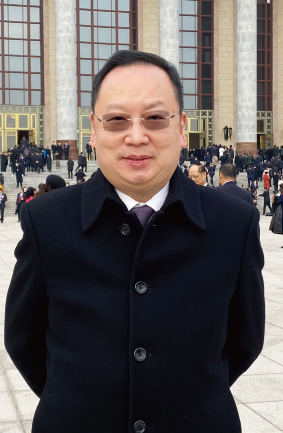
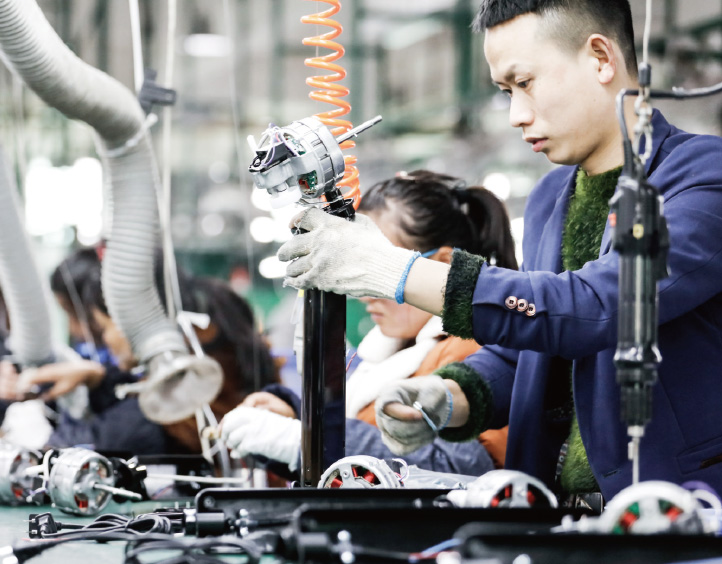 Rock Chen, the Chamber’s Vice-chairman (CPPCC National Committee member), said that a large number of smart new technologies have been widely used in the financial field in recent years, creating a series of brand-new financial businesses. On the other hand, regulatory development has been lagging behind, leading to an almost unregulated development of private financial technology (fintech) companies, which is not only the reason for the earlier bursting of the online P2P lending bubble, but also the key to the excessive leverage employed by large fintech companies like Ant Group.
Rock Chen, the Chamber’s Vice-chairman (CPPCC National Committee member), said that a large number of smart new technologies have been widely used in the financial field in recent years, creating a series of brand-new financial businesses. On the other hand, regulatory development has been lagging behind, leading to an almost unregulated development of private financial technology (fintech) companies, which is not only the reason for the earlier bursting of the online P2P lending bubble, but also the key to the excessive leverage employed by large fintech companies like Ant Group.
“Increasing numbers of tech companies are now involved in various innovative financial fields, resulting in cross-industry mixed operations. Some of them have basically become financial institutions, but they are completely not subject to regulation in terms of capital ratios and risk management. As a result, they expanded more hurriedly and quickly than traditional financial institutions, and eventually a small financial bubble was formed and then burst. Therefore, the authorities must pay attention to these major financial regulatory loopholes and address the systemic risks posed by innovative financial technologies.”
In his view, regulators such as the China Banking and Insurance Regulatory Commission and the China Securities Regulatory Commission have been basically able to fulfill their respective regulatory duties in the old days when the division of business was obvious. However, in recent years, as individuals and businesses have become more aware of investment and wealth management and their needs for financing have increased, banks, securities companies, insurance companies, loan companies, private equity funds, internet platforms, etc. have become engaged in various types of financial business such as credit, asset management and investment banks, leading to a situation of mixed financial operations. Against this backdrop, regulatory concepts of the past are no longer fully applicable. Therefore, China needs to accelerate regulatory system reform to achieve comprehensive regulation of financial businesses.
He suggested regulating according to the nature of financial activities. For those innovative financial businesses whose nature can be clearly understood, they can be regulated according to the same rules as those for traditional financial businesses. For innovative financial products or services whose nature is not yet clear, they can be subject to a “regulatory sandbox” to limit the scope of risks, so that a limited number of customers can be invited to participate in the trials of fintech projects without fully complying with regulatory requirements. However, financial platforms must adopt customer protection and risk management measures to reduce associated risks.
Charles Cheung: Promote co-development between Hainan Free Trade Port and Greater Bay Area
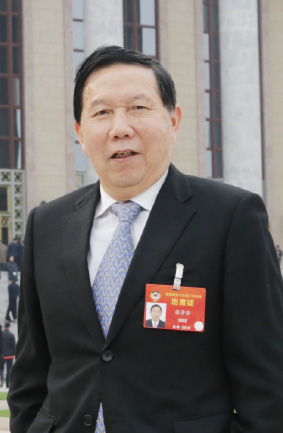
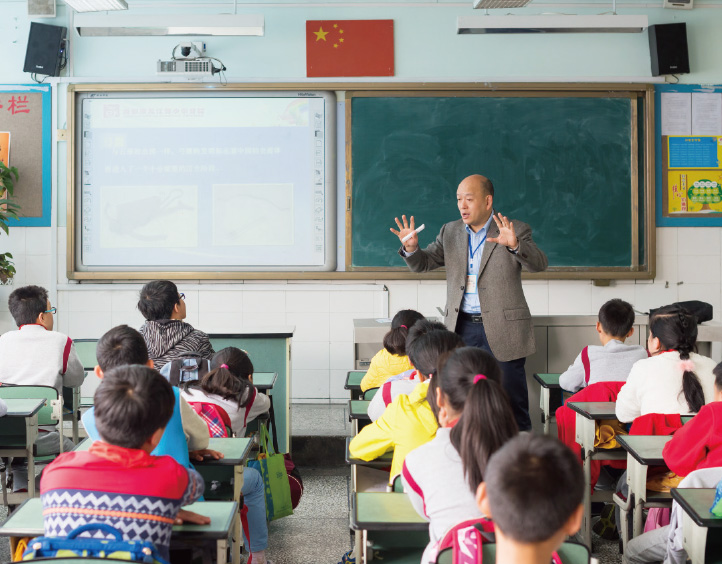 Charles Cheung, the Chamber’s Vice-chairman (CPPCC National Committee Member), noted that Hainan Province has achieved positive results in promoting the construction of a free trade port since 2018. In his view, the Greater Bay Area, as one of the most open and economically dynamic regions in China, has an important strategic position in the country’s development landscape. Against this background, Hainan should further consider how to promote the construction of the free trade port to achieve coordinated and integrated development with the Greater Bay Area.
Charles Cheung, the Chamber’s Vice-chairman (CPPCC National Committee Member), noted that Hainan Province has achieved positive results in promoting the construction of a free trade port since 2018. In his view, the Greater Bay Area, as one of the most open and economically dynamic regions in China, has an important strategic position in the country’s development landscape. Against this background, Hainan should further consider how to promote the construction of the free trade port to achieve coordinated and integrated development with the Greater Bay Area.
As one of the freest economies in the world, Hong Kong has a highly international, market-oriented, rule-of-law business environment and a global business network. Cheung believes that Hainan can learn from Hong Kong’s institutional experience to build a free-trade port that meets its development orientation. It should also consider stepping up preferential tax policies to reduce corporate and personal income tax rates. In addition, it should further open up the sale of imported duty-free goods across the island, significantly raise the limit on offshore duty-free purchases, increase the variety of duty-free goods, and simplify the purchasing process. At the same time, it should further expand the scope of application of visa-on-arrival and visa exemption for international tourists, and actively attract professionals from foreign countries, Hong Kong, Macao and Taiwan to work and reside in Hainan.
In addition, it should accelerate coordinated and integrated development with the Greater Bay Area in areas such as infrastructure, financial services and technology education. “Hainan should further improve its sea, land and air transportation infrastructure interconnected with the Greater Bay Area. It should also coordinate with the relevant departments of the Central Government to speed up the pilot of offshore financial businesses, speed up the establishment of legitimate exchanges for international energy, shipping, commodities, property rights, equity and carbon emission rights, and consider putting in place a financial industry development model for differentiated division of work and integrated development with the Greater Bay Area.”
David Fong: The Country strives for great rejuvenation of China
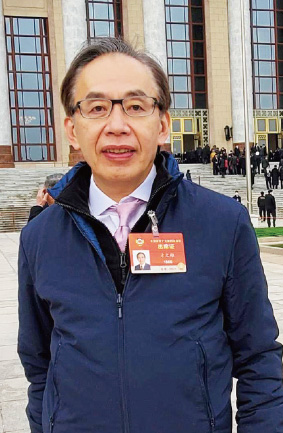
 David Fong, the Chamber’s Life Honorary Chairman (CPPCC National Committee Member), noted that one of the key points of this year’s “Two Sessions” was the deliberation of the 14th Five-Year Plan and the long-range objectives through the year 2035. The 14th Five-Year Plan, which not only marks the beginning of the long-range objectives through the year 2035, but also signifies the decisive stage in which China strives to return its GDP to the world’s top position, has attracted much domestic and international attention.
David Fong, the Chamber’s Life Honorary Chairman (CPPCC National Committee Member), noted that one of the key points of this year’s “Two Sessions” was the deliberation of the 14th Five-Year Plan and the long-range objectives through the year 2035. The 14th Five-Year Plan, which not only marks the beginning of the long-range objectives through the year 2035, but also signifies the decisive stage in which China strives to return its GDP to the world’s top position, has attracted much domestic and international attention.
The Chinese Government began to formulate the “Five-Year Plan” in 1953. In 2006, it started to shift China from a planned system to a market economy. It has again introduced new initiatives this year. It no longer set hard targets in some aspects of the 14th Five-Year Plan. Instead, the targets are divided into indicative and binding targets. It also did not set a specific GDP growth target, as economic growth is no longer a core issue because the main focus of the 14th Five-Year Plan is to promote high-quality development.
Fong added: “There will be challenges and opportunities, merits and drawbacks during the 14th Five-Year Plan period. Interaction and counteraction between China and the US will continue to be intense, but China’s internal situation will be relatively stable. The problems caused by rapid economic development in the past decades, such as environmental damage, corruption and poverty, have been basically controlled and eased, which is conducive to building a new development paradigm in which the domestic market is the mainstay while letting internal and external markets boost each other. This should be able to deal with the ‘decoupling’ strategy led by the US against China.” However, in the long run, China’s birth rate will continue to decline and the benefits it gets from its huge population will gradually decrease. Therefore, the country must pursue high-quality development and drive the economy with innovation in order to switch its source of benefits from its huge population to talents and achieve major breakthroughs in key core technologies, with the aim to achieving its long-range objective of moving to the forefront of innovative countries by 2035.
“Our great revival is not just in GDP. In an era of knowledge-based economies, cultural soft power is increasingly important in the competition of comprehensive national strength. We also need to promote social civilization, improve quality of the citizens, narrow the gap between the rich and the poor, improve people’s well-being, build ecological civilization, optimize industrial and energy structures, and broadly shape green, low-carbon production and lifestyles to contribute significantly to the global response to climate change.” He hopes that China will be at the forefront of the world in all aspects in order to realize the magnificent pattern of China’s prosperity.
Martin Liao: Encourage Hong Kong professionals to take part in developing the Greater Bay Area
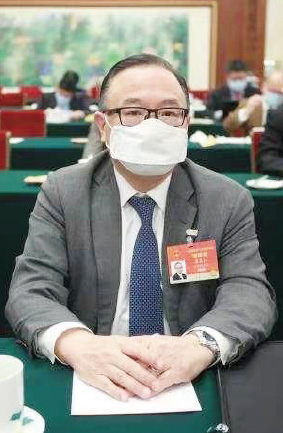
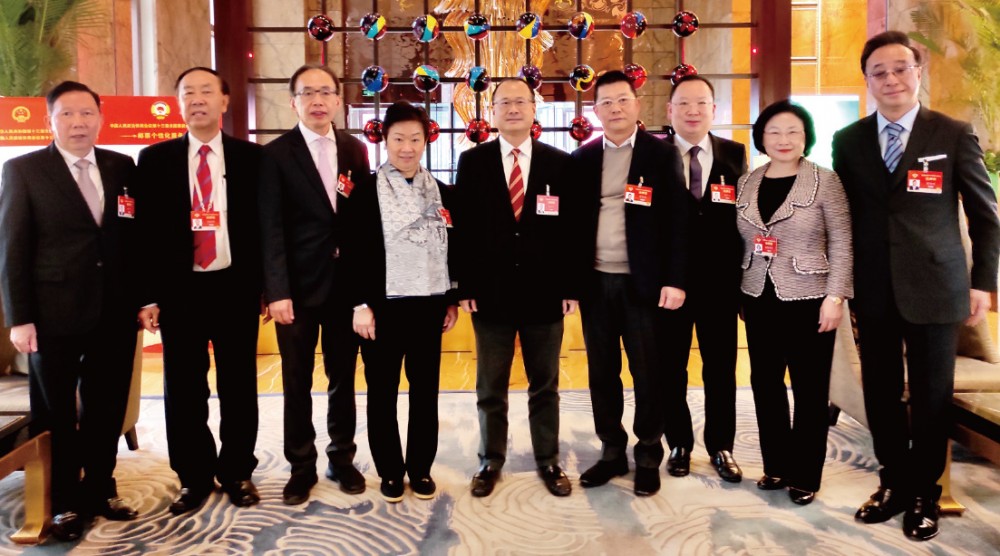 Professional services are a key indicator of an advanced economy. Given that the Greater Bay Area is home to diverse professional service sectors and a huge pool of high-end talents, Martin Liao, the Chamber’s Standing Committee Member (Deputy to the NPC), thinks Guangdong, Hong Kong and Macao should create mutual benefits and advantages through coordinated development. Together, we can build an international center of professional services in the Greater Bay Area.
Professional services are a key indicator of an advanced economy. Given that the Greater Bay Area is home to diverse professional service sectors and a huge pool of high-end talents, Martin Liao, the Chamber’s Standing Committee Member (Deputy to the NPC), thinks Guangdong, Hong Kong and Macao should create mutual benefits and advantages through coordinated development. Together, we can build an international center of professional services in the Greater Bay Area.
According to Liao, Hong Kong professional service sectors are backed by people of broad vision and experience. This is a unique advantage of Hong Kong. In the 14th Five-year Plan period, Hong Kong’s professional services made active contributions to our country’s economic growth and further opening. He therefore hopes to see more opening measures and policy provisions for Hong Kong businesses to facilitate professionals of different disciplines to seek career opportunities on the mainland, particularly for professional practice in the Greater Bay Area.
He suggests mulling measures in several aspects, such as introducing mutual recognition of professional qualifications within the Greater Bay Area. He notices that legal, architecture and insurance professionals from Hong Kong are not enjoying equal treatment as their mainland peers, while professionals of other disciplines face various restrictions when seeking development in the Greater Bay Area. He recommends conducting investigative studies to address disciple-specific issues based on actual circumstances. This would solve the problem of “opening the big door but not the small ones” in the long run.
In addition, Liao suggests to set up a professional services center to provide advice on government policies, training and business matching service to professionals from Hong Kong and other regions planning for career development in the Greater Bay Area. Efforts should also be made to streamline the complex process of re-applying for permits and licences to operate cross-border business. Moreover, with a centralized information platform in place, businesses and professionals of different disciplines can identify cooperation partners through various channels, such as websites, WeChat groups and mobile apps. Such a platform will also facilitate resource matching as well as government support initiatives. Liao also proposes to waive mobile roaming charges and offer tax incentives, while improving transport infrastructure and building a pleasant living circle to make working and living more desirable so they would not have reservations about planning their careers in the Greater Bay Area.
Improving the Electoral System to Raise Legislative Quality
Ian Fok: Testament of the Central Government’s care and concern for Hong Kong
The international community has long been wary of China’s rise. Hong Kong is inevitably a piece in this game of chess. As a result of external intervention, Hong Kong has seen chaos and commotions in recent years and the situation is worrying. Knowing that prosperity is not possible without stability, the Central Government introduced the National Security Law earlier and lately improved the electoral system, even though such moves would attract accusations from foreign powers. There was no alternative and it is evident that the Central Government loves and cares about Hong Kong. I hope our society will gradually resume order as chaos stop, and the councils will provide opportunities for balanced participation. When good and able people are appointed to office, more talented candidates will be attracted to offer advice and suggestions for the future of Hong Kong.
Jonathan Choi: Ensure Hong Kong’s long-term peace and security
In Choi’s view, the NPC’s overwhelming adoption of the Decision on improving the electoral system of the HKSAR fully embodies the collective will of all Chinese people, including Hong Kong compatriots, to effectively safeguard the country’s sovereignty, security, and development interests. It has greatly expanded the balanced and orderly political participation of all sectors of Hong Kong society and guaranteed the democratic rights and quality of Hong Kong residents, making the election committee more broadly representative and more in line with of Hong Kong’s actual situation. He is convinced that it can effectively address the issues of general politicization of the LegCo and the endless social discord in Hong Kong in recent years.
Ricky Tsang: Ensure the stability and long-term development of “One country, Two Systems”
From the “Occupy Central” incident in 2014 to the anti-amendment protests in 2019, it is clear that foreign forces have very deeply infiltrated Hong Kong and some opposition lawmakers have colluded with them, thereby seriously undermining Hong Kong’s prosperity and stability. For example, every time a major bill was discussed at the Legislative Council, in their own political interests, they would inevitably use various means to delay, hinder or even, through extreme filibustering, cripple the functioning of the Legislative Council. Some legislators also openly advocated Hong Kong independence at the oath-taking ceremony, highlighting the loopholes in “One Country, Two Systems”. The NPC’s adoption of the decision on improving Hong Kong’s electoral system will help not only solve the problems in the political system existing since the reunification, but also return “One Country, Two Systems” to its original purpose to achieve stability and long-term development.
Connie Wong: Effectively plug loopholes in the electoral system
The NPC’s decision will help Hong Kong fully implement the policies of “One Country, Two Systems”, “Hong Kong governed by Hong Kong people” and “high degree of autonomy”, and safeguard the country’s sovereignty, security and development interests. In recent years, Hong Kong has been stuck wastefully in political disputes. As a result, many livelihood issues, such as housing and medical care, have been left unresolved and its economic development has been severely impaired, with the development of neighboring Shenzhen now long surpassing Hong Kong. In 2019, the “mutual destruction faction” pushed for violent street confrontations, plunging Hong Kong into months of unrest, with people’s lives and property on the brink of disaster, which showed up the obvious loopholes and shortcomings in Hong Kong’s electoral system. The NPC’s decision effectively plugs the loopholes in the system, which will help ensure “Patriots administering Hong Kong” and maintain Hong Kong’s long-term prosperity and stability.
Tommy Li: Focused efforts can be made to build a bright future for Hong Kong
This decision has certainly improved the old electoral system. It shows that Hong Kong’s political system is coming back on track. The people of Hong Kong can elect broadly representative candidates to participate in government and political affairs, and ensure that Hong Kong will be served by patriots who love the HKSAR. It is vital to Hong Kong’s long-term prosperity and stability. The introduction of a candidate qualification review committee will make it impossible for anti-China trouble makers to take part. It will also avoid unnecessary fall outs so we can focus time and effort on building a bright future for Hong Kong and benefiting the society. The NPC Standing Committee definitely has the authority and duty to amend Annex I and Annex II to the Basic Law. I hope the HKSAR Government will improve the law of the Hong Kong Special Administrative Region and regulate electoral activities as soon as possible.
Herman Hu: Prevent external forces from manipulating Hong Kong
It is necessary and urgent for the country to lead the improvement of Hong Kong’s electoral system, and the process is constitutional, legal, fair, and reasonable. It fully embodies the country’s determination to help Hong Kong bring order out of chaos, plug the loopholes in the electoral system, and restore the patriots-focused “Hong Kong people ruling Hong Kong” political principles and standards to ensure that only patriots can remain in power while eliminating the opportunity for external forces to manipulate and kidnap Hong Kong through non-patriotic, anti-China and radical separatists. Hong Kong’s future promises will materialize only if it accelerates its integration into the country’s development landscape and embarks on its rapid economic track.
Rock Chen: Help “One Country, Two Systems” bring order out of chaos
In general, the Central Government’s starting point is to bring order out of chaos and re-direct “One Country, Two Systems” to the right direction and onto the right track for stability and long-term development. It also shows that the Central Government is facing up to and resolving some of the problems that have accumulated since Hong Kong’s return. The NPC’s decision effectively prevents anti-China radicals and even Hong Kong independence forces from entering the governance structure in terms of systems. But this is only the most basic requirement. The next step is to see whether people who are talented, politically competent, committed and genuinely want to serve the people can be elected in future elections, and effectively monitor and improve the HKSAR Government’s level of governance for the benefit of the Hong Kong people.
Charles Cheung: “Patriots administering Hong Kong” is justified
I am pleased to see that the “patriots administering Hong Kong” standard and the reform of the electoral system have received great attention from the Central Government. As Hong Kong is a part of the country, realizing “patriots governing Hong Kong” is a matter of course. Only “patriots administering Hong Kong” can safeguard the country’s sovereignty, security and development interests, guarantee Hong Kong’s long-term prosperity and stability, and ensure the stability and long-term development of “One Country, Two Systems”. The key to realizing “patriots administering Hong Kong” lies in the reform of the electoral system and improving it on the legal level to ensure that Hong Kong’s administrative, legislative, judicial, educational, and public institutions are led by patriots, while people who advocate violent confrontation, mutual destruction and Hong Kong independence are cleared out. Only in this way can Hong Kong’s political stability be effectively maintained.
David Fong: Social stability is the cornerstone of improving people’s livelihood
In recent years, Hong Kong has suffered a series of political turmoil, social divisions and economic devastation. It is only through a deep appreciation of social stability that Hong Kong can develop its economy and improve its people’s livelihood. The Central Government’s proposal of “patriots administering Hong Kong” is the best solution to Hong Kong’s plight. Indeed, Mr Deng Xiaoping, the advocate of “One Country, Two Systems”, stressed in the early years that “Hong Kong must be governed by patriotic Hong Kong people”. Hopefully, everyone will place the interests of the country and the well-being of the people as the priority, put aside differences and be rational and pragmatic to bring Hong Kong back on track for development as soon as possible, proving the superiority and vitality of “One Country, Two Systems” with renewed prosperity and stability to set a good example for the country’s reunification endeavor.
Martin Liao: Putting Hong Kong back on the right track
Advocated by Deng Xiaoping in the 1980s, “Hong Kong to be ruled by patriots” is not a new concept. Following the 2013 political reform and the later “Occupy Central” and anti-extradition law amendment controversies, plus the impact of intervention by external forces, the political situation was shifting increasingly away from the original intention of “One Country, Two Systems”. The Central Government had to put things right to get back to the origin. China is a country with a single system governed by top-down authority. The perfecting of Hong Kong’s electoral system to exercise rule is beyond reproach. It is not an excessive demand. As a matter of fact, when NPC Standing Committee Chairman Li Zhanshu announced the passing of this decision, he was given a round of applause. It is evident that everyone hopes this decision will put Hong Kong back on the track for future development.




